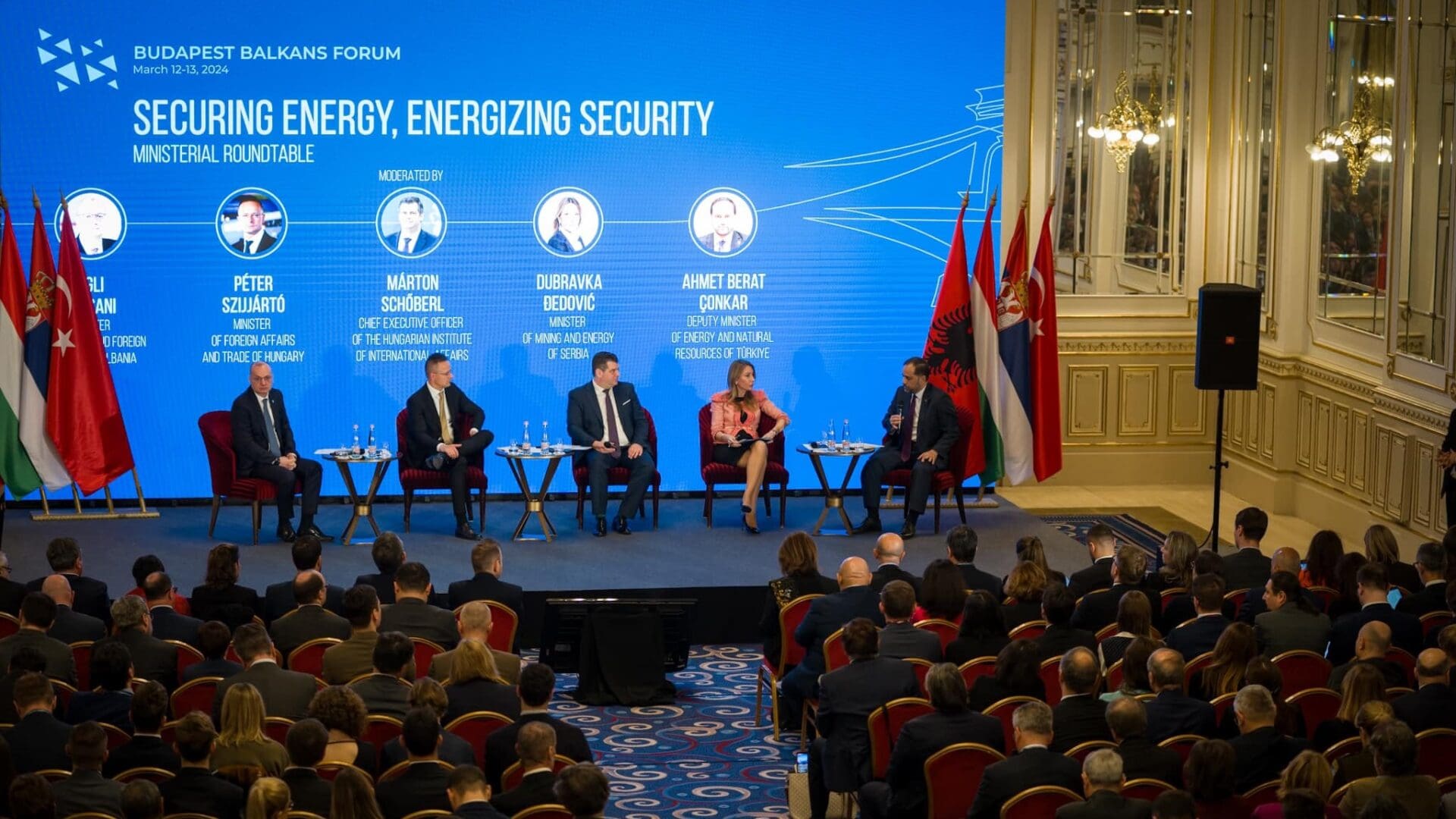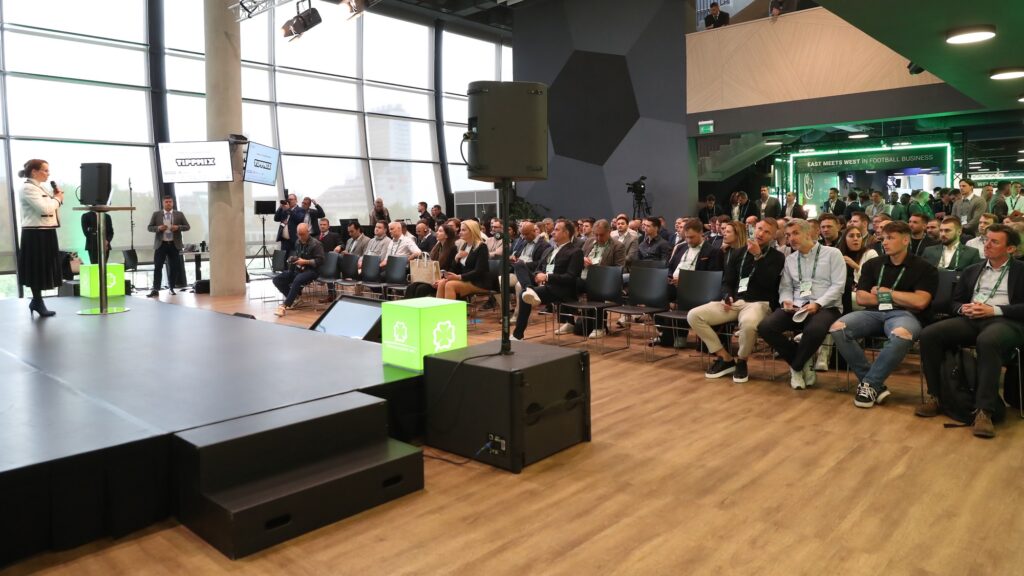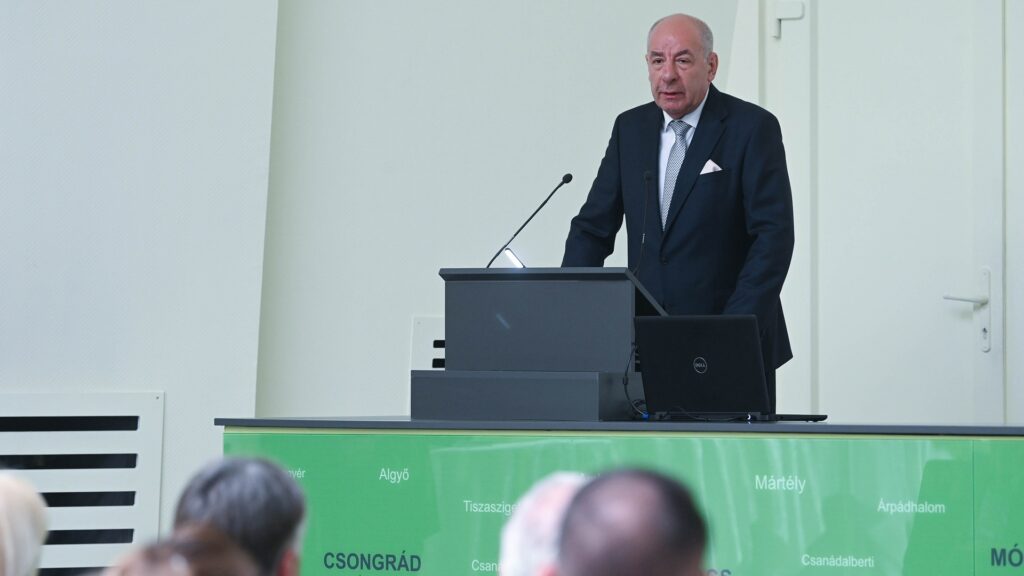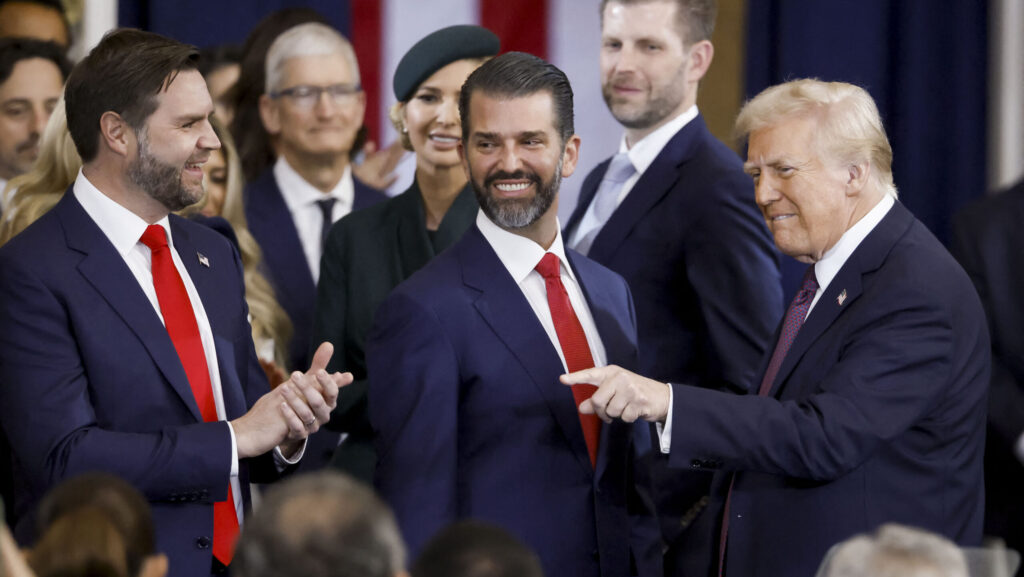The Budapest Balkans Forum 2024 kicked off on Tuesday, 12 March for the eighth time in the Hungarian capital. The two-day conference brought together experts, ministers, and representatives from the region to share their views on the future of the Balkans, a key region for Europe in many respects, and the challenges it faces.
In his opening speech, CEO of the Hungarian Institute of International Affairs (HIIA) Márton Schőberl highlighted Hungary’s extensive historical and cultural ties with the Balkan region. ‘Consequently, it comes as no surprise that the largest conference in Europe focusing on the region is now held annually in Budapest,’ he underlined.
During his address, Schőberl also highlighted the agenda of the upcoming Hungarian EU presidency, scheduled to start in July. A key priority of this agenda is the promotion of the European Union’s enlargement, with particular emphasis on the Western Balkans. These countries have long awaited accession, making them a significant focus of the presidency’s initiatives.
Growing Hungarian Military Presence
After the opening speech Hungarian Defence Minister Kristóf Szalay-Bobrovniczky and EU Affairs Minister János Bóka took the floor. During this session Szalay-Bobrovniczky highlighted the significance of the Balkan region with regard to security policy. He stressed the importance of maintaining a Hungarian military presence in the region to uphold stability. As examples, he referenced the NATO mission in Kosovo (KFOR), led by Major General Ferenc Kajári from 2021 to 2022, and the EU mission in Bosnia and Herzegovina (EUFOR Althea), led by Major General László Sticz starting from 21 January 2024.
The defence minister stressed that
the Hungarian command of KFOR had been particularly successful,
closing the year without any major incidents, and increasing Hungarian presence in the NATO contingent. He expressed optimism for a similarly smooth management of the mission in Bosnia. The minister clarified that the explicit objective of the Hungarian command was not to meddle in Bosnia’s political processes but rather to allow security and military considerations to inform decision-making, resolving issues pragmatically.
Szalay-Bobrovniczky highlighted the repercussions of the war in Ukraine on the region, mentioning both overt and covert impacts, such as heightened hybrid operations and cyberattacks. He noted that the disruption stemming from the conflict has also affected illegal immigrants and their facilitators, resulting in increased migration pressure on Europe’s southern borders. Consequently, Szalay-Bobrovniczky stressed, the states affected should join the European Union promptly to help relieve that pressure.
Bringing the Balkans Closer to the European Union
In his speech János Bóka echoed Márton Schőberl’s opening remarks, underlining the historical significance of the integration of the Western Balkans into Europe and Hungary’s unique bond with the region and its nations. He highlighted the region’s pivotal role in border protection, combating migration, and ensuring energy security, while also emphasizing its potential for offering economic opportunities, essential resources, and a skilled workforce to Europe. Bóka stressed the presence of beneficial dynamics within the region that the EU could leverage, citing the prosperous relations between Serbia and Hungary as a prime example. He expressed optimism about the EU reaping significant benefits from such relations in the future. Bóka proposed Hungary’s potential role as a bridge between the Western Balkans and the European Union.
In this context, the minister highlighted that over twenty years ago the EU pledged membership to the states of the region. He pointed out that one of the primary objectives of the Hungarian EU presidency would be to honour this commitment, or at least
expedite the enlargement process.
Although acknowledging the considerable challenge this presents, he asserted the readiness of Hungarian diplomacy to tackle it.
The Minister further stated that during the Hungarian presidency they aim to host a European Political Community conference in Budapest. This conference could serve as a valuable platform for bilateral discussions on various soft security matters, energy, communication, transport, cybersecurity, and more.
According to János Bóka, the Hungarian government’s overt objective is to increase the involvement of Western Balkan countries in the EU’s political processes. This extends beyond enlargement efforts to encompass the EU’s daily domestic affairs.
Crucial Region for the European Energy Security
After the conversation between János Bóka and Kristóf Szalay-Bobrovniczky a ministerial roundtable discussion followed, attended by Péter Szijjártó, Hungarian Minister of Foreign Affairs and Trade, Ahmet Berat Çonkar, Deputy Minister of Energy and Natural Resources of Türkiye, Dubravka Dedović, Minister of Mining and Energy of Serbia, and Igli Hasani, Minister for Europe and Foreign Affairs of Albania. The focal point of the discussion was energy security in Europe and the Balkans.
In his address Szijjártó emphasized the critical role of the Balkan region in shaping the future of European energy security, particularly in light of the diversification efforts by EU states. The foreign minister highlighted that the diversification plan will remain a mere aspiration unless concrete actions accompany the rhetoric and the requisite infrastructure is established. He underscored the paramount importance of infrastructure development in South-Eastern Europe in this regard, noting the absence of financial support from the European Commission.
Szijjártó metaphorically remarked: ‘Until they find a way to transport natural gas or oil in backpacks or sports bags, we will need pipelines, and these will determine where we can buy from.’ He added that the
security of energy supply is not an ideological matter but a tangible, physical concern.
The sentiments expressed by Szijjártó were echoed by Dubravka Dedović, who also emphasized that infrastructure development could enhance connectivity and ensure security of supply for the states in the region. Dedović highlighted existing initiatives such as the planned Pannonian Corridor, aimed at linking Hungary and Serbia through high-voltage cable infrastructure. Additionally, Dedović noted the positive impact of diversification on the population, citing increased competitiveness and reduced consumer prices as key benefits.
Igli Hasani highlighted the Western Balkans’ potential to emerge as a secure and stable energy supplier for Europe amidst evolving geopolitical dynamics. Concurrently, the Albanian Foreign Minister emphasized the imperative of infrastructure development, advocating for collaborative efforts between the EU and the region’s states in this endeavour.
Nuclear or Not?
Nuclear energy and the green transition were also significant topics of discussion. Szijjártó pointed out that Hungary’s geography allows it to think in two main directions when it comes to renewable energy sources: solar and nuclear. The Hungarian Foreign Minister underlined that while nuclear energy faces continuous ideological scrutiny, it remains an undeniable source of green energy. Szijjártó noted the progress in the expansion of the Paks nuclear power plant, highlighting that the construction of new reactors will
mitigate 17 million tonnes of carbon dioxide emissions annually.
He further mentioned that despite enduring criticism, the Russian state nuclear company Rosatom collaborates on the project alongside Western companies, including a German firm currently engaged in soil stabilization. Szijjártó stressed that nuclear energy provides a safe, cost-effective, and sustainable method of electricity generation. He stressed the importance for Europe to move beyond ideological debates and focus on practical realities regarding energy production.
Ahmet Berat Çonkar agreed with the Hungarian minister and noted the significant role of nuclear energy in Türkiye’s green transition. Like Hungary, Türkiye is also building a nuclear power plant under construction by Rosatom in Akkuyu, in the south of the country. Dubravka Dedović added to the discussion by asserting that virtually every energy source’s infrastructure has some negative environmental impact, exemplifying this with the issue of worn-out solar panels. Thus,, she insisted, discriminating against nuclear energy is unfair.
The two-day conference will also feature a series of panel discussions on topics such as the challenges of the Balkan enlargement, the future of regional cooperation, demographic challenges in the region, and overcoming the brain drain phenomenon, among others.
Related articles:








